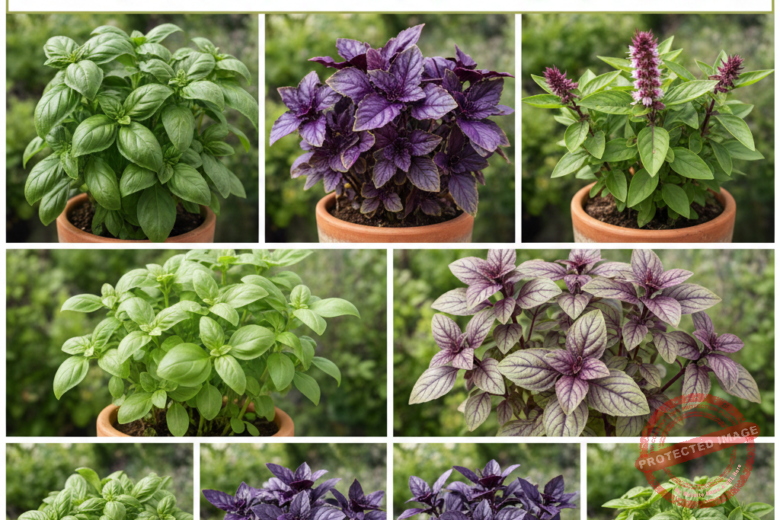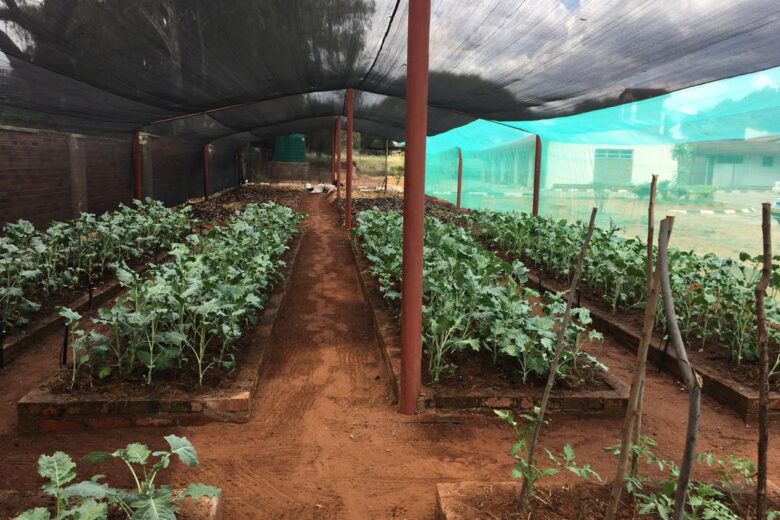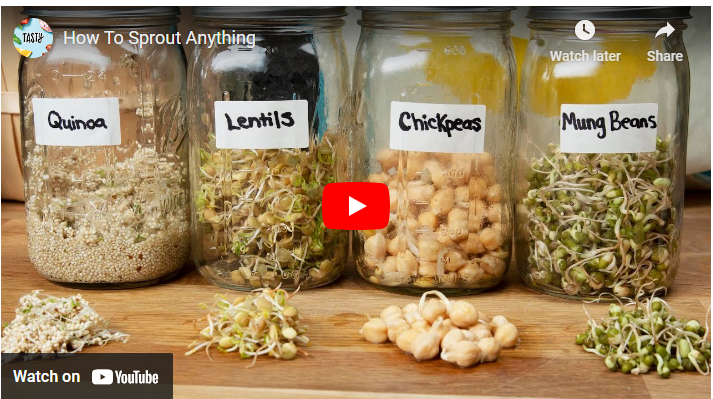The dry season in Nigeria presents a difficulty for onion farming, yet with suitable techniques and practices, it is feasible to cultivate onions successfully during this period.
As the demand for healthy food choices rises, onion production has become more critical. This article offers practical advice and a step-by-step guide on planting onions during the dry season in Nigeria.
Growing onions in Nigeria’s dry season can be a challenge, but with the right preparation and care, it is possible. Start by selecting varieties of onions that are suitable for the Nigerian climate, such as Granex, Red Creole, and Sweet Granex. Prepare the soil by adding a layer of compost and some well-rotted manure and tilling to a depth of 8-10 inches.
Plant your onions in rows, spacing them 6-8 inches apart and 1-2 inches deep. Water your onions deeply and consistently during the dry season, taking care to avoid overwatering. Mulch the soil with straw or grass clippings to help retain moisture and reduce weeds. Finally, ensure the onions are getting adequate sunlight by weeding regularly and staking taller varieties.
By adhering to these instructions, farmers can raise their harvest and support food security in the nation. With careful planning and implementation, growing onions during the dry season can be a lucrative enterprise for farmers.
How to Plant Onions in Dry Season in Nigeria Step By Step Guide
Growing onions during the dry season can be more challenging compared to the rainy season. The steps to successfully cultivate onions during this season have been carefully outlined below. It is important to follow these steps from beginning to end to achieve optimal results.
Read Also: [Beginners Guide] How To Grow Vanilla In Nigeria
Step 1: Choose the Right Planting Site
Choosing the appropriate planting site is crucial for a successful onion farming in Nigeria. One key factor to consider is the amount of direct sunlight the site receives, with most onion varieties requiring 6-8 hours per day.
Avoid shaded areas and ensure the soil has excellent drainage to prevent waterlogging and root rot.
Read Also: [Beginners Guide] How To Plant Pear In Nigeria
Poorly drained areas may also be nutrient-deficient and lead to soil-borne diseases, which can harm the plants and reduce their productivity.
Step 2: Choose the Right Onion Variety
Select onion varieties that are well-suited for the dry season in your area. Some onions that can thrive in hot and arid conditions include okra, eggplant, cowpeas, sweet potatoes, and leafy greens such as kale and spinach.
Consult local experts or agricultural extension officers to determine the best varieties for your region.
Read Also: [Beginners Guide] How To Grow Spinach In Nigeria
Step 3: Planting Site Preparation
Before planting, clear any weeds or debris from the site and till the soil to a depth of approximately 15 cm. This action helps to loosen the soil and create an ideal environment for root growth.
Incorporating organic fertilizers such as manure, compost, or bone meal into the soil is recommended to enhance soil nutrient levels and improve moisture retention.
Organic fertilizers also contribute to the development of the soil structure, encourage microbial activity, and enhance soil fertility.
Read Also: [Beginners guide] How To Grow Okra in Nigeria
Step 4: Create Seed Beds
Constructing raised seed beds or ridges is advised to prevent waterlogging and enhance drainage. This technique allows excess water to drain away from the plants, which prevents root rot and waterlogging. Raised beds also provide an optimum growing environment for plants, as the soil is loosened and aerated.
Step 5: Plant the Seeds
Ensure that the seed bed is moist before planting the onion seedlings. After creating the seed beds or ridges, it is time to plant the seeds.
Planting the seeds approximately 2-3 cm deep and 20-30 cm apart, depending on the size of the mature plant, will ensure optimal growth and development of the plants.
Planting the seeds at the correct depth and spacing is vital for the plants’ growth and development.
Read Also: [Beginners guide] How To Grow Okra in Nigeria
Step 6: Onions Plant Care
To ensure proper growth, take proper care of the onion plants. Here are some of the essential activities you need to do:
#1. Regular Watering
Water the plants regularly, especially during the first few weeks after planting, to promote germination and growth.
Nigeria experiences a dry season that can be challenging for crops, and without adequate moisture, plants may struggle to develop or produce a good harvest.
Water the plants at the base using a watering can or drip irrigation system to ensure that water reaches the roots effectively.
Read Also: Seasonal Planting Guidelines for Native Yam In Nigeria [Farmers Guide]
#2. Mulch the Plants
Mulching is a crucial step in onion farming as it helps to reduce moisture loss from the soil due to evaporation. It also aids in controlling weed growth and maintaining a consistent soil temperature.
Spread a layer of organic materials like straw, leaves or grass clippings around the base of the plants. Be careful not to place the mulch too close to the stem of the plant to avoid rotting.
#3. Protect the Plants
Protect the plants from pests and diseases to ensure a successful harvest. Employ appropriate pest control methods like insecticides, fungicides, or natural predators to maintain plant health.
Read Also: [Beginners Guide] How to Grow Pineapple in Nigeria
Consider using integrated pest management techniques to decrease chemical use and promote natural pest control.
Regularly monitor the plants for signs of pests or diseases and take quick action to prevent infestations.
Step 7: Harvest the Matured Onions
Harvest your onions at the appropriate time to ensure good quality and yield. Refer to the recommended guidelines for each crop, as some crops such as beans and okra may require frequent harvesting.
Read Also: How To Grow Grapes in Nigeria [Beginners Guide]
To avoid damaging the onions, use sharp tools for harvesting. Properly store the onions after harvest to prevent spoilage and maintain their quality.
Varieties of Onions that is Planted in Dry Season
There are several varieties of onions that can be planted during the dry season in Nigeria. Some of the popular ones include Red Creole, Texas Early Grano, and Yellow Sweet Spanish.
These varieties are known for their ability to thrive in the dry season, produce high yields, and have good market value.
Benefits of Planting Onions in Dry Season in Nigeria
Planting onions during the dry season in Nigeria has several benefits. One major benefit is that the dry season provides an ideal environment for onion growth and development, with less risk of pests and diseases.
Read Also: How To Grow Groundnut in Nigeria [Beginners Guide]
Also, onions grown during the dry season have a longer shelf life and are less likely to rot or spoil.
More so, there is usually a high demand for onions during the dry season, which translates to higher profits for farmers.
Cost of Planting Onions in Nigeria
The cost of planting onions in Nigeria varies depending on several factors such as the size of the farm, cost of seeds, fertilizer, labour, and other inputs. On average, it can cost between ₦50,000 to ₦200,000 to plant one hectare of onions in Nigeria.
Read Also: Hydroponics Farming in Nigeria [Beginners Guide]
Projected Profit of Onions Farming in Nigeria
Onion farming in Nigeria can be very profitable, especially when properly managed. With good farming practices and marketing strategies, farmers can make a profit of up to ₦1,000,000 per hectare.
Common Diseases and Pests of Onions Farming in Nigeria
Onion farming in Nigeria is vulnerable to several pests and diseases, including thrips, onion maggot, stem and bulb rot, and purple blotch. These diseases can cause significant damage to the crops and reduce yields if not controlled.
How much is Onions Sold in Nigeria
The price of onions in Nigeria varies depending on the season, demand, and supply. Onions can be sold for as low as ₦200 per kilogram and as high as ₦500 per kilogram.
Read Also: [Beginners Guide] How To Start Rice Farming In Nigeria
Best practices of Planting Onions in Dry Season in Nigeria
To get the best results from planting onions in the dry season in Nigeria, farmers should use high-quality seeds, prepare the soil properly, apply the right amount of fertilizer, and practice good weed and pest control.
In addition, it’s important to water the crops adequately and monitor the weather conditions to prevent excessive heat stress.
Challenges Of Planting Onions in Dry Season in Nigeria
Some of the challenges of planting onions in the dry season in Nigeria include lack of adequate irrigation facilities, high cost of inputs, and poor market access. Also, pests and diseases can be a major challenge, especially if not properly managed.
Read Also: How To Start Oil Palm Tree Farming Business In Nigeria
Where to Sell Onions in Nigeria
Onions can be sold in various markets across Nigeria, including major cities like Lagos, Abuja, and Kano. Farmers can also sell their onions to middlemen or retailers who can help them distribute to other parts of the country.
Top of Form
Different Propagation Methods of Onions in Nigeria
Onions can be propagated in several ways, including from seeds, sets, and transplants.
Seeds are the most common propagation method, while sets and transplants are often used for early planting or to extend the growing season.
Proper care should be taken when propagating onions to ensure a high germination rate and healthy plants.
Read Also: How To Start Tomatoes Farming Nigeria [Beginners Kit]
Cost of Starting Onion Farming in Nigeria
Starting an onion farm in Nigeria can be a profitable venture, but it requires a significant investment. The cost of starting an onion farm varies depending on the scale of the farm and the location.
Some of the expenses include land acquisition, labor, seeds, fertilizer, pesticides, irrigation systems, and equipment.
On average, the cost of starting an onion farm in Nigeria ranges from ₦500,000 to ₦5,000,000, depending on the scale.
Read Also: [Beginners Tips] How to Grow Garlic in Nigeria
When Onions are Cheap in Nigeria
The price of onions in Nigeria fluctuates depending on the season. Onions are usually cheaper during the peak harvest season, which is from December to February.
During this period, the supply of onions is high, and the prices are relatively low. Onions are more expensive during the off-season, which is from May to October when the supply is low.
Onion Production in Nigeria PDF
Onion production is a critical sector of Nigeria’s agricultural economy. Nigeria is the largest onion producer in West Africa and the third-largest in Africa after Egypt and Tanzania.
Onion production in Nigeria has the potential to create employment opportunities, reduce food imports, and boost the economy.
Read Also: [Best Guide] How To Grow Pepper Anywhere In Nigeria
A comprehensive Onion Production in Nigeria PDF document can provide detailed information on the various aspects of onion farming in Nigeria, including varieties, planting techniques, pests and diseases, irrigation, and harvesting.
Onion Farming In Rainy Season
Onion farming is typically done during the dry season in Nigeria. However, with proper planning and techniques, onion farming can be done during the rainy season as well.
One of the key challenges of onion farming in the rainy season is the risk of fungal diseases.
To mitigate this risk, farmers can adopt planting techniques that promote good drainage, use resistant onion varieties, and apply fungicides when necessary.
Where To Get Onion Seeds In Nigeria
Obtaining quality onion seeds is crucial for a successful onion farming venture in Nigeria. Onion seeds can be purchased from reputable seed companies, agricultural extension offices, or other farmers.
In addition, online marketplaces and e-commerce sites provide a convenient platform to buy onion seeds in Nigeria.
Onion Farming Pdf
Onion farming is a profitable venture in Nigeria, but it requires proper planning, management, and execution.
An Onion Farming PDF guide can provide comprehensive information on the various aspects of onion farming in Nigeria, including site selection, land preparation, planting, fertilization, pest and disease control, irrigation, and harvesting.
How To Plant Onions At Home
Onion farming is not limited to commercial farmers; it can also be done at home for personal consumption or as a hobby.
Planting onions at home is relatively easy and requires minimal space and resources.
To plant onions at home, one can start by selecting a suitable location with well-drained soil, preparing the soil, planting the onions, and watering them regularly.
With proper care and maintenance, one can harvest fresh onions from their home garden.
Conclusion
Planting onions in the dry season in Nigeria can be a challenging task, but it is achievable with proper planning and execution. The key is to prepare the soil well and provide adequate irrigation. Choosing the right onion variety and planting at the right time can also make a significant difference in the success of the crop. With these tips and techniques, farmers can maximize their yield and profitability even in the dry season.



